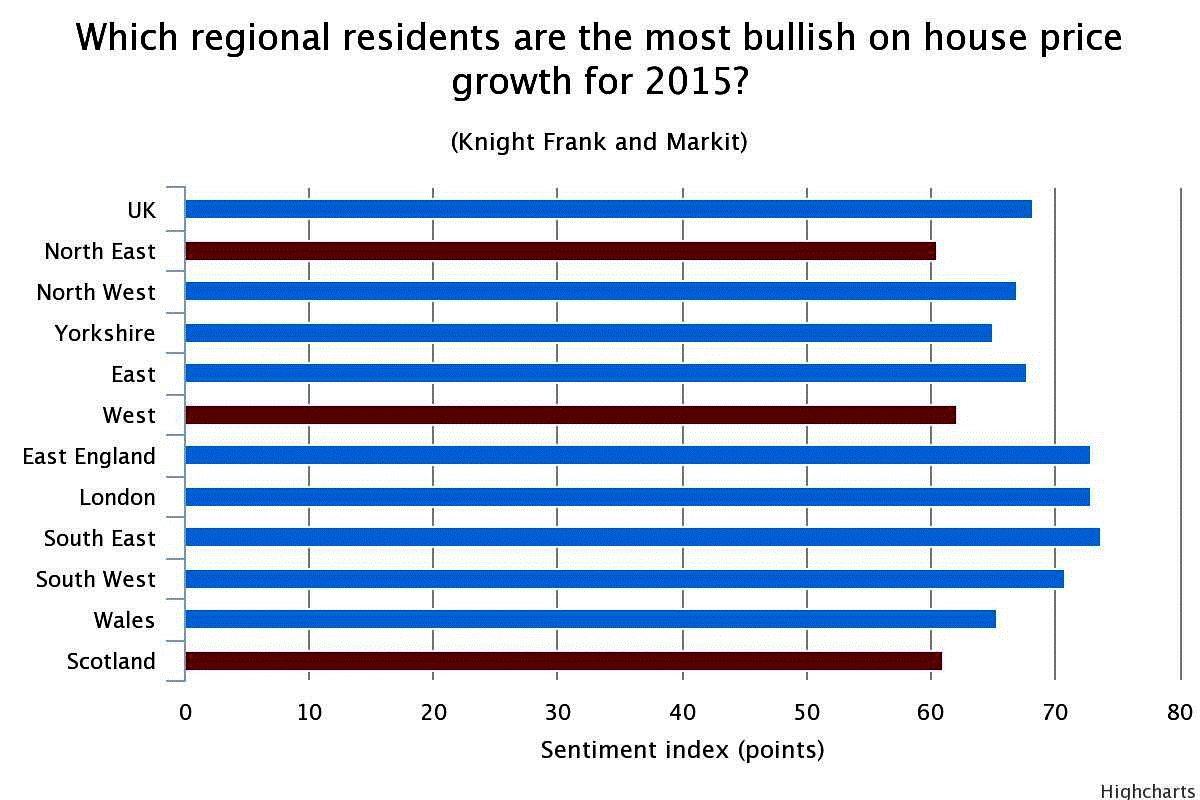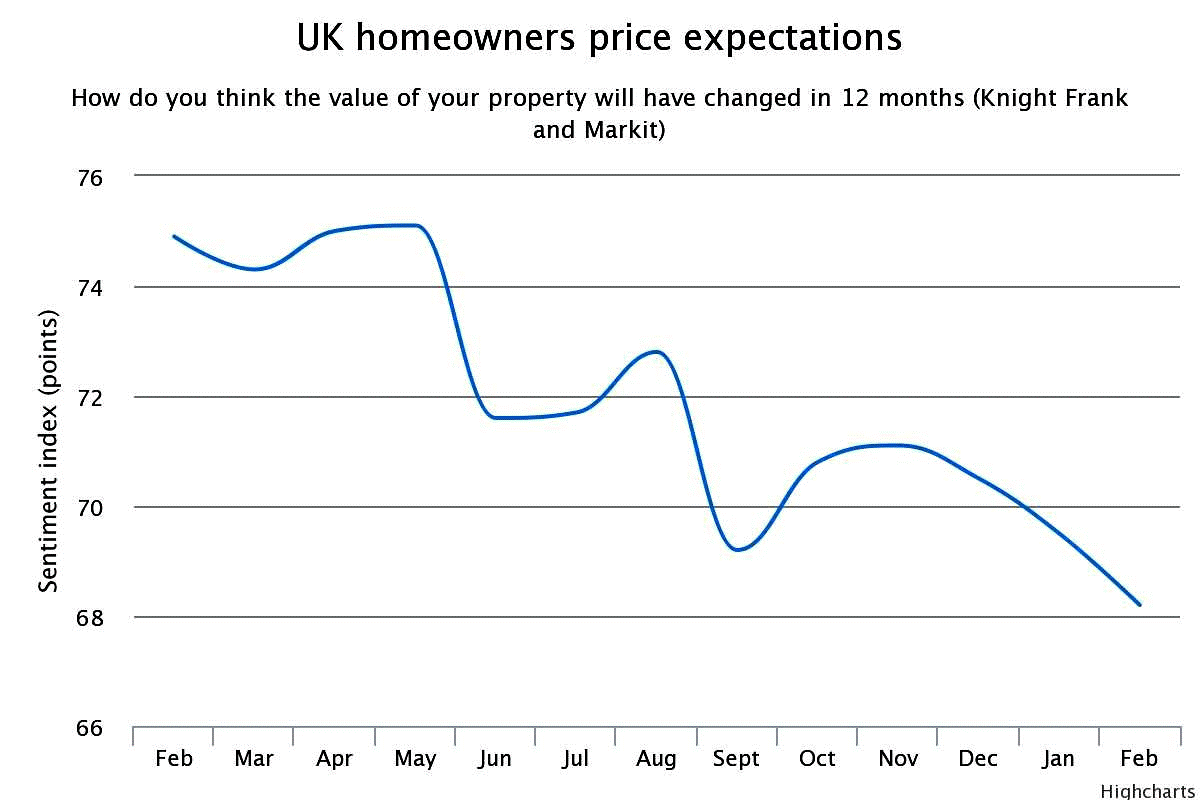Over the three months to February householders became steadily more pessimistic, predicting slower price appreciation in 2015, according to the property group, Knight Frank.
Despite the low interest rate environment and wide range of cheap mortgage deals on offer, the sentiment index, which each month tracks whether homeowners think the price of their property will go up or down over the next 12 months, fell from 74.9 a year ago, to 68.2 this February, having peaked at 75.1 in May.
February’s index represents the lowest perceived rate of price growth since August 2013.

Analysts at Knight Frank blamed the cooling sentiment on affordability constraints following rapid house price growth in the first half of 2014, while many householders were also distracted by the general election.
“The easing in house price sentiment indicates that the market is in for a steadier year than 2013 or 2014. While buying intentions are still relatively high, there is less conviction that prices will rise strongly this year,” said Grainne Gilmore, head of residential research at Knight Frank.
“New mortgage rules and affordability constraints in some parts of the country are likely to weigh in on price growth. In the shorter-term, many households are focussing on the election, the outcome of which could change some household finances if taxes or benefits are reformed," she added.

Britain’s most bullish householders live in the South East of the country, forecasting stronger price growth than their regional counterparts, and expecting to benefit from the flow of Londoners moving into the commuter belt in search of better value for money.
People in the South of England and London were more positive about price inflation than those in the North East and Scotland, home to the UK’s gloomiest inhabitants.
Despite the moderating sentiment, the majority of the country do not anticipate a fall in the value of their property, with around six times more UK households forseeing a rise in their property value during the year ahead than those predicting a fall.
The analysis also suggested that after May’s election, activity levels in the housing market will pick up.
The data revealed that 6.2pc of UK households said they planned to buy a property in the next 12 months, up from 5.9pc in January, with Londoners the most likely to move house, followed by people who live in the West Midlands.
"In the market we can already see sellers trimming their expectations having tried last years prices. New stock is sometimes being priced expecting to be 'chipped' but those who still quoting 2014 prices will find few feet through the door," said Henry Pryor, a private buyer and market commentator.
"With the usual uncertainty of the election keeping buyers on the fence and fearful of commitment, estate agents are finding that they have to lean on their clients rather than buyers to get the deals done."



